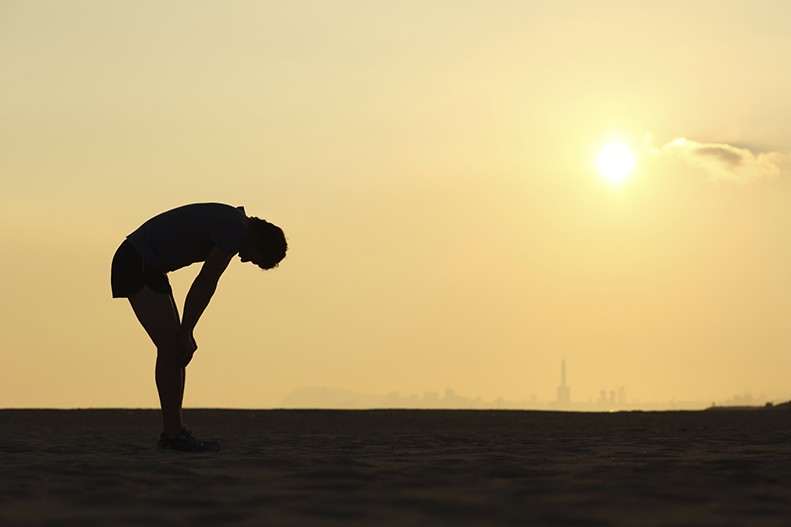Heat Exhaustion - What It Is & What To Look Out For

During the hot Summer months, our bodies work overtime to stay cool. However, heat exposure tends to be more taxing on sensitive individuals, who are more at risk of experiencing heat exhaustion or overheating. Heat exhaustion is in the middle tier of illnesses and can lead to heatstroke without prompt treatment. The most common culprits for heat exhaustion are vigorous exercise, and scorching temperatures, especially if they're accompanied by elevated humidity.
How Can I Tell If Heat Exhaustion Is Setting In?
Heat exhaustion can be tricky to detect because the onset may either be instantaneous or gradual. In addition, due to the physically tiring effects of heat exposure, it may be more challenging to listen to our bodies. Indicators of heat exhaustion include:
- Feeling lightheaded and dizzy; disoriented
- Damp skin that's cool to the touch, goose bumps during heat exposure
- Profuse sweating
- Weakness/fatigue
- Muscle spasms
- Headache
- Upset stomach/vomiting
- Low blood pressure in standing position
- Racing yet faint pulse rate
Personal & Environmental Factors For Heat Exhaustion
Various occupations, such as construction work, put individuals at a higher risk for environmental factors for heat-related sickness. These factors may include:
- Heat output from high-temperature sources, including the sun
- Ground material, such as asphalt and other conductive sources and surfaces
- Lack of proper airflow
- Intensity and duration of the workload
- Time of day spent working (morning and midday vs. evening and night)
- Heat-repellent/resistant clothing and personal equipment used by workers
- Humidity levels temperature of the air
Heat-related sickness can also be accelerated due to certain personal factors, which may include:
- Dehydration
- Consumption of caffeinated and alcoholic beverages
- A person age
- Consumption of prescription drugs with symptoms that influence heat-related physiological reactions, such as water retention within the body
- Overall health and wellbeing
- Acclimation to new or constantly changing environments and weather conditions
Ways To Avoid Heat Exhaustion
· Never underestimate the heat inside a parked car. All that's needed for a car sitting in the sun to become nearly 20 degrees hotter is a mere 10 minutes, even with slightly opened windows, as the CDC says. Park your car in shaded areas such as under trees or well-ventilated garages. Small kids and pets are susceptible to heat, so you should never leave them in hot vehicles unattended.
· Don't overdress or wear heat-absorbent material. Dressing in light, breathable, loose-fitting clothing is a must to avoid becoming heat sick. One of your body's primary methods of getting rid of built-up body heat is through sweat evaporation; wearing constrictive clothing or an unnecessary amount of layers can hinder your body's ability to cool off.
· Stay indoors during the hottest part of the day. Your body works overtime to keep itself cool under normal conditions; being physically active during a scorching hot day increases the risk of overheating dramatically. If you work out, try opting for an indoor gym or running errands early in the morning or later in the evening.